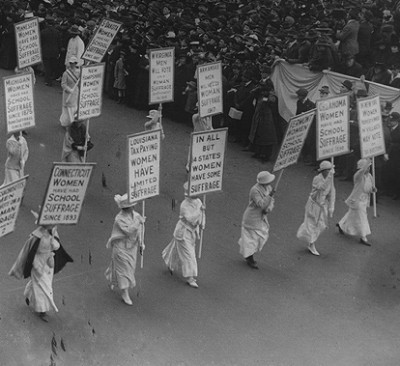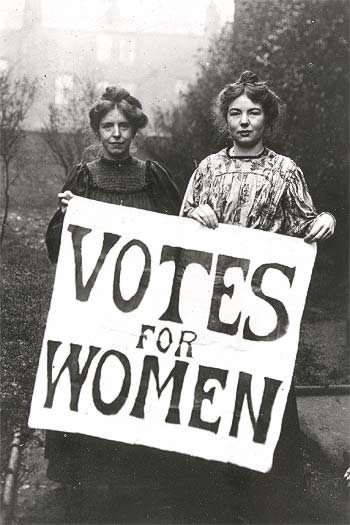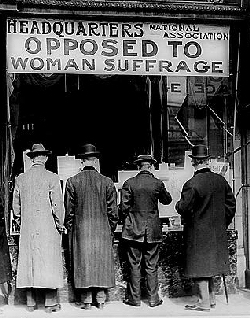
In
the 1800's women possessed very few legal or political rights; they were
basically treated like children. When a woman was single she had a few freedoms
like the ability to manage their own property, but as soon as the woman got
married she would lose that freedom and the ability to keep her own
wages. A perfect example of their lack of rights is when Lucretia Mott and
Elizabeth Cady Stanton attended the World Anti-Slavery Convention. Because they
were women, Lucretia and Elizabeth were forced to sit silently behind a curtain
for the entirety of the meeting. The women of
The fight for women's rights was widely ridiculed. However, the people of the
movement persisted to fight for women's rights and they soon began seeing results.
By 1865, 29 states had laws that allowed women to keep property and wages after
they married. A lot of achievements for women's rights would not have been made
if it wasn't for the leading women (and men) of the movement. One of the
leading women was Susan B. Anthony. She strongly believed that women's suffrage
was needed to achieve other legal rights and she widely preached the concept.
Susan b. Anthony was also responsible for playing a key role in turning the
call for women's rights into a national movement. Some other leaders in the
movement were Lucretia Mott (attended both conventions mentioned), Elizabeth
Cady Stanton (attended both conventions mentioned and was a big recruiter for
the movement), and Fredrick Douglas (attended the Seneca Falls Convention and
helped pass women's suffrage at the convention). |
||
 |
 |
|